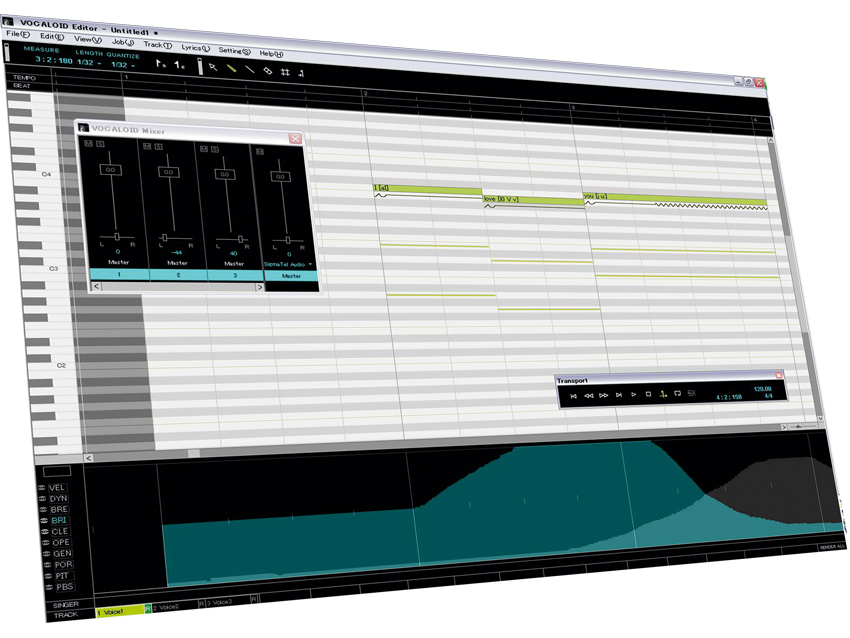MusicRadar Verdict
Very artificial-sounding but as good as software vocal synthesis gets and you get plenty to tweak and control.
Pros
- +
Young female voice. Designed for the English language. Uses Yamaha's Vocaloid software engine.
Cons
- -
Results don't sound real. PC-only.
MusicRadar's got your back
Yamaha's Vocaloid voice synthesizer software has been around for a few years now. Sonika is the latest offering from Zero-G, which has licensed the Vocaloid software engine and produced a series of vocal synthesis packages, each with a distinct voice, but all offering the same high level of user control and musical expression. Sonika is a young female voice and is primarily designed to sing in English.
On first firing up Sonika, it's clear that the Vocaloid interface still isn't particularly pretty to look at. However, what it lacks in aesthetics it makes up for in effectiveness. The main edit window resembles a sequencer's piano roll and entering notes is done as you would with the pencil tool in a DAW, giving you control of the pitch and timing of the notes to be sung.
The next step is to add lyrics, which are then converted to show the exact phonemes that Sonika will sing. Vocaloid gives you control over more subtle aspects of the singer's expression such as vibrato, dynamics and legato, and more familiar controls such as attack and resonance enable tweaking of the timbre of the voice.
For more of a real-time approach, the keyboard Performance mode enables you to program the lyrics in advance and then use a MIDI input to control the pitch and other expression parameters, giving a live feel to the voice. Jamming in Performance mode is a great way to come up with new ideas and unique sounds.
Sound and summary
The sound is generally good, but always distinctly artificial. The Vocaloid engine offers the most realistic synthesis of singing voices we've heard from any piece of software, and the level of control means you can tweak a whole host of variables to get the best sound from it.
Sonika is unlikely to be mistaken for a real singer, but the sound of Vocaloid is a step up from main rivals such as VirSyn Cantor (which, unlike Vocaloid, is available for Mac).
Artificial vocal sounds have a tendency to get tiresome quite quickly but the range of expression that can be achieved using Vocaloid's settings is impressive and enables a variety of different effects to be achieved, from the obvious highly synthetic lead lines to more subtle backing vocal parts and interesting pads.
It's definitely not something that we'd like to use on every track, but Sonika fits the bill if you want to try something a bit different, and no other vocal synthesis engine can quite compete with Vocaloid.
Listen to Vocaloid Sonika in action:
Future Music is the number one magazine for today's producers. Packed with technique and technology we'll help you make great new music. All-access artist interviews, in-depth gear reviews, essential production tutorials and much more. Every marvellous monthly edition features reliable reviews of the latest and greatest hardware and software technology and techniques, unparalleled advice, in-depth interviews, sensational free samples and so much more to improve the experience and outcome of your music-making.
“Built from the same sacred stash of NOS silicon transistors and germanium diodes, giving it the soul – and snarl – of the original”: An octave-fuzz cult classic returns as Jam Pedals resurrects the Octaurus
What’s the buzz? Meet Yellowjacket, Cherry Audio's recreation of EDP’s trend-setting Wasp from 1978
“A fabulous trip through all eight songs by 24 wonderful artists and remixers... way beyond anything I could have hoped for”: Robert Smith announces new Cure remix album











